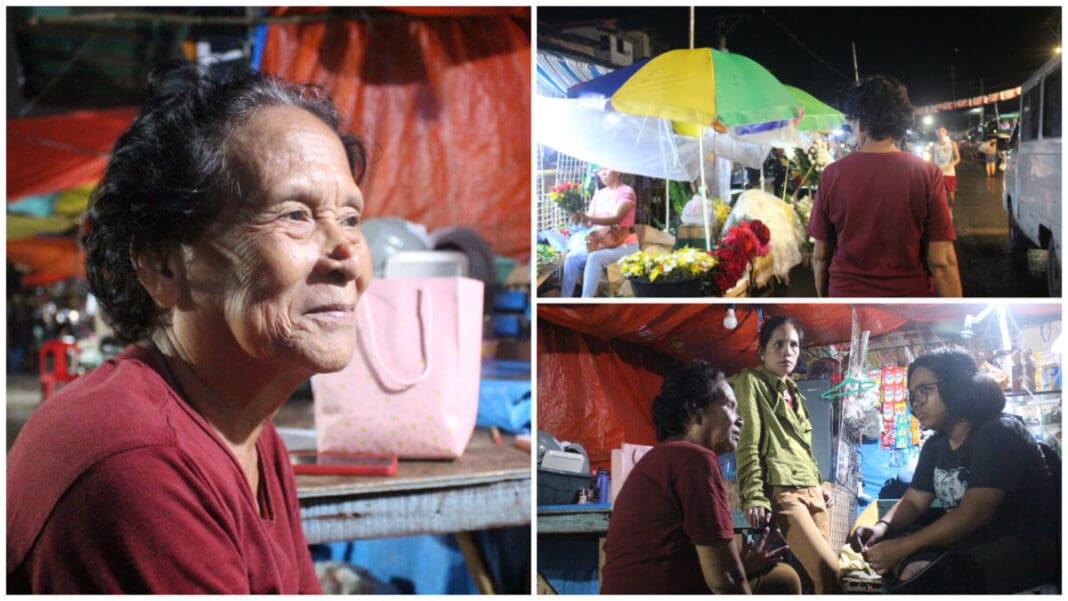On a normal night, the streets of Carbon are busy with vendors carrying their goods and buyers bargaining their prices. The market is lively because of the people–a reality only made possible because of the women who stood their ground to defend it.
The Carbon Public Market holds the history of Cebu and, most of all, the resistance of women. At the forefront of this struggle stands Salvacion Hequitillo, an urban poor organizer.
Nay Salbing, as she would like to be referred to, began organizing women in the urban poor communities in 1996.
Women like Nay Salbing are a manifestation that as long as there is oppression, there will always be resistance.
Women as Twice Oppressed
In the Philippines, women often face dual forms of oppression: economic marginalization and gender discrimination.
Nay Salbing observes that women are frequently undervalued in political and economic spheres, often relegated to domestic roles despite their significant contributions to society. This systemic undervaluation underscores the need for women to understand and assert their rights, not only within the family but also in the broader socio-economic context.
Historically, organizations like the Makabayang Kilusan ng Bagong Kababaihan (MAKIBAKA) have emerged to address these dual oppressions.
Founded in the 1970s, MAKIBAKA highlighted the intersection of national issues and women’s struggles, emphasizing that true liberation requires addressing both class and gender inequalities.
Today, women’s resistance continued in other forms and organizations. At the heart of Nay Salbing’s advocacy is the Cebu Urban Poor Women’s League (CUPWOL), an organization dedicated to championing the rights of women in marginalized communities.
CUPWOL serves as a collective voice for urban poor women, providing them with platforms for education, leadership training, and livelihood support. Through community meetings and human rights orientations, CUPWOL equips women with the knowledge and skills needed to defend their rights and demand better living conditions.
Despite facing threats and being subjected to intimidation tactics, members of CUPWOL remain resolute in their mission. The organization plays a crucial role in advocating for housing rights, access to basic services, and fair labor conditions for women and their families.
Women Hold up Half the Sky
The adage “Women hold up half the sky” reflects the indispensable role of women in societal development.
In urban poor communities like those in Cebu City, women are often the backbone of both the household and the local economy. Nay Salbing emphasizes the importance of empowering women by educating them about their basic rights and roles within the family and workforce.
In the fight for living and livelihood, Nay Salbing asserts, “Makabarog ang kababayen-an sa ilang katungod (Women can stand for their rights).”
This empowerment enables women to actively participate in decision-making processes and contribute meaningfully to community development.
The Philippine government has made strides in promoting gender equality through various legislative measures addressing workplace discrimination, domestic violence, and human trafficking.
However, challenges remain, and continuous efforts are necessary to ensure that policies translate into tangible improvements in women’s lives.
Women in the Streets and the Struggle
The active participation of women in social movements has been pivotal in advancing their rights and addressing societal issues. Nay Salbing’s involvement in organizing and community actions exemplifies this engagement.
Nay Salbing stresses that, “Makamartsa ang kababayen-an para demokrasya, kalinaw, gugma (Women can march for democracy, peace, and love).”
This struggle is achieved because of love, as she claims, “Pinaagi sa gugma naa ang kalinaw. Pinaagi sa panaghiusa, naay makab-ot nga kausaban (Through love, there can be peace. Through solidarity, we can achieve change).”
The resilience of women organizers like Nay Salbing is evident in their response to challenges such as human rights violations. Despite facing threats and intimidation, she remains steadfast, believing that as long as issues affecting women persist, the struggle must continue.
As we commemorate Women’s Month, stories like Nay Salbing’s remind us that the celebration extends beyond identity—it is rooted in a movement driven by working women committed to achieving genuine equality.

